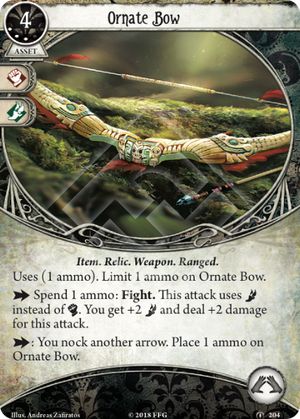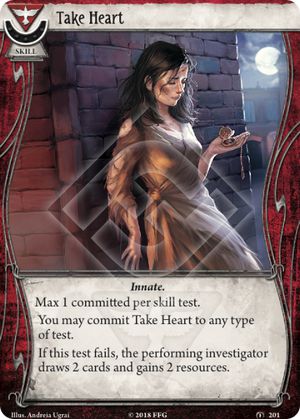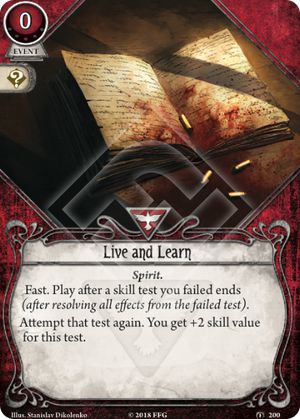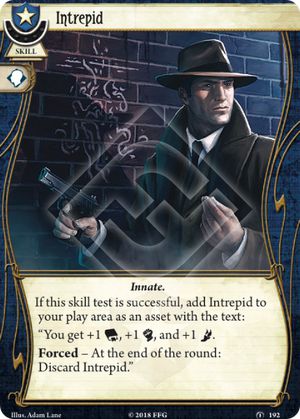
This card has generated a lot of hype. And why not? It unlocks an entirely new playing style by allowing investigators to fight with Agility, and the +2 damage is quite impressive. Plus, anyone can take it!
I'm going to argue, though, that Ornate Bow is not actually that good and probably not worth the 3 XP, 4 resources, and 2 hand slots.
First, the action efficiency on Ornate Bow is really poor for an XP card. If you play the Bow and use it once, it's clearly way inferior to just using something like Backstab or "I've got a plan!" or Waylay. If you use it twice, you're dealing 6 damage over 4 actions. That's the same as a level 0 weapon can do! And the more you use it, the worse the action efficiency gets. Use it four times for (optimally) 12 damage over 8 actions. A standard +damage level 0 weapon can deal 14 damage over 8 actions. The more you use the Bow, the less efficient it is compared to the game's level 0 weapons. That's not great for a 3 XP card.
The Bow does have the advantage that you need to pass fewer skill checks. In the above example, 12 damage from the Bow would take 4 successful skill checks, where it would take 6 from the weapons. That's a considerable advantage. But then there's the big disadvantage that a lot of enemies have more than 3 health, and reloading the bow during combat is a huge pain. You either have to swallow attacks of opportunity or you have to evade, and either is wasteful. Even if you're facing 3-health enemies, obviously the optimal situation for the Bow, if/when you miss with the Bow, you suddenly find yourself in an awful spot. If you miss with other weapons, it's not nearly as bad. (Finn can get around this, but I don't think the Bow is that great for him--see below.)
So the Bow is not looking so great for a 3 XP weapon. And indeed, I think anyone with half-decent Combat (and this would include Finn, Jenny, Silas, and Skids) should just use weapons that use Combat instead, because these are way better. Even if your to-hit bonus is a little lower, even the level 0 weapons are more efficient in terms of actions, and the XP weapons available to these investigators are way more efficient. (Not to mention Rogues have a nice set of cards that synergize well with a big gun, like Sleight of Hand and Contraband, but are really terrible with the Bow.)
But what about those high-Agility investigators who have really low Combat but high Agility, like Ursula, Wendy, and Sefina? Doesn't the Bow find a home here?
The answer is: sort of. Yes, these would be the most viable candidates to use the Bow. But I have real doubts here. For one, like I said, you're still not reaching very good efficiency. You're still doing worse, action-wise, than other investigators do using level 0 weapons. Since you have to invest a lot into the Bow in terms of XP, resources, and hand slots, I'm really skeptical when the final result ends up being not very efficient compared to how other investigators can fight.
Besides, these investigators all have really important things to be doing with their hands. Ursula is simply a far better investigator when she's got a Magnifying Glass or two in hand than when she doesn't. Ditto for Sefina with Lockpicks or Spirit Athame or Wendy with Lockpicks. By playing the Bow you are seriously compromising your ability to investigate. I think someone like Sefina or Wendy is better off not fighting very much, and using events like Backstab, Sneak Attack, or Waylay on the rare occasions that they really want to kill something, rather than investing a ton into the Bow for a pretty unspectacular payoff. (Plus, focusing more on events synergizes really well with these characters anyway.)
And yes, Ursula has a possible combo with Dr. Elli Horowitz to get around the Bow's hand slots. But not only is that unreliable (the Bow needs to be in the top 9 cards of your deck), you're just using up a different super-valuable slot instead. More to the point, Ursula can just take Acidic Ichor, which is not only far more efficient than the Bow and attacks at the same base value, it's also far cheaper and doesn't take up any slots at all. She should just do that.
I'm not trying to say the Bow is unplayable. If you really want to make it work, I'm sure it's possible. But I do think the efficiency is not very good and the Bow is not nearly as profitable as it seems at first glance, even for those investigators who seem like the best fits.




